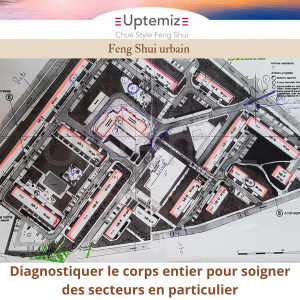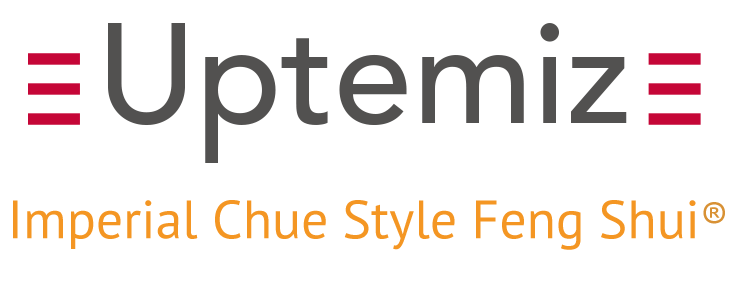When trying to improve a living situation, we spare no efforts and use our resources and knowledge. We sometimes seek external guidance from specialists, and mainly focus on our own strengths and plans of action. We resort to human stamina.
Feng Shui is termed HAM YUE, which means “investigating, studying the Heavens and the Earth, gazing up at the stars and, from the top of a mountain, looking down towards the ground.
The key is to understand how these two forces amalgamate
and how they influence our environment as well as our lives.
Thus, in order to properly lay out a given space for the benefit of its occupants, Feng Shui draws from disciplines such as astronomy, astrology and geography.
No one today has any doubts about the impact which the environment has on public health and the quality of life. Reconnecting with nature has become a priority. Landscaping programmes revegetate cities, promote biodiversity and protect the remaining green spaces. Even though its resonance with the energy of the Heavens is not taken into account, the force of the Earth is used to advantage.
We can also understand, through the influence which celestial bodies exert on the Earth, the events taking place in any living space at a given time. This is the force of the Heavens.
These forces interconnect and interact. They bring into being the perfect
and harmonious balance much in evidence in nature.
The whole value of Feng Shui rests on the ability to merge the forces of both the Earth and Heavens in ways that foster human life. We cannot change the configuration of the Heavens, but we can remodel the ground so as to harmoniously align these forces, guarantors of our health and well-being.

Diagnosing the whole body in order to heal specific parts.
When presented with a project aiming at improving a city or neighbourhood, Feng Shui regards as a whole body the relevant buildings and green spaces. The interactions between the Heavens, the Earth and Man are identified through a number of observations and calculations, thus allowing the detection of areas which might be problematic and unbalanced.
Space planning advice is then offered. Such recommendations often relate to the flows of movement, the colours and the shapes which should be favoured, the best orientations, the selection of street furniture, the possible addition of a body of water, and unquestionably the enhancement of the urban landscape. And to ensure successful results, Feng Shui will also determine the precise moment at which the work should be undertaken.
In this example, the initial project consisted in the embellishment of an inner courtyard. The Feng Shui expertise pinpointed three issues that had to be resolved: noise pollution, drug trafficking and the presence of homeless people. The following correctives were proposed: partial revegetation, the installation of street lamps and cameras, and the creation of a safe and welcoming space for the homeless.
Feng Shui does not limit itself to the enhancement of premises. Thanks to its diverse techniques, space can be laid out or rearranged to improve the prevailing situation. Daily life takes a turn for the better as social behaviours and public health improve, happy occurrences multiply, and urban violence and disorder decrease or even vanish.
Feng Shui is the medicine of human habitat and living conditions. Its recommendations are not candid, yet they can be easily implemented more often than not. Feng Shui is an analytical tool which can be used as an enhancing complement to construction and development programmes.



